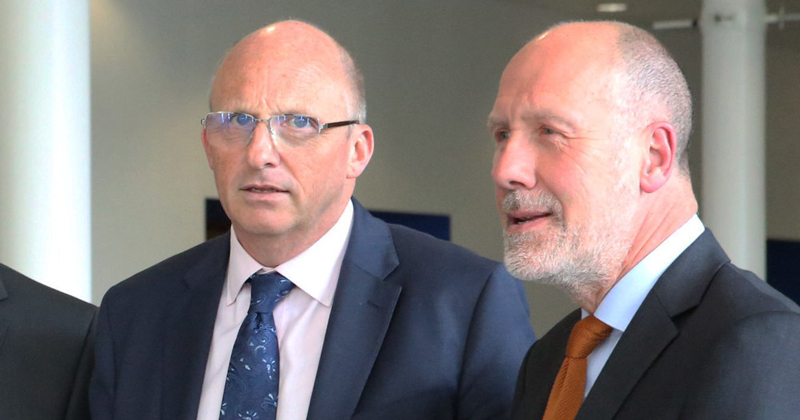A Labour government would “upskill” non-maths specialists in primary schools in a bid to create the “maths equivalent to phonics”, Bridget Phillipson will announce tomorrow.
The shadow education secretary will announce that some of the £210 million already committed by the party to provide an entitlement to training and professional development for all teachers will be targeted at a scheme to develop maths skills among primary teachers.
It marks a clear dividing line with the Conservatives, with Labour focused on the youngest schoolchildren, while prime minister Rishi Sunak wants to extend compulsory maths teaching to 18.
In fact, Labour has even said it would reform the PM’s maths to 18 working group, “so it focuses on primary maths as a first priority and investigates the maths equivalent to phonics”.
The party’s already-announced curriculum review would also be tasked with “bringing maths to life and directing teachers to show children how numeracy is used in the world around them, such as through household budgeting, currency exchange rates when going on holiday, sports league tables and cookery recipes”.
This would include bringing elements of financial literacy into teaching, Labour said. It is understood this relates to primary schools, as financial literacy is already included in the key stage 3 curriculum.
Phonics a ‘template’ for maths plan
The upskilling would be delivered through the party’s “teacher training entitlement”, which is funded with £210 million from money they expect to raise by charging private schools VAT.
Labour will also seek to take some credit for the boost in recent years to literacy rates, pointing to the “achievements of the work started by the last Labour government on phonics”.
Phonics was given a higher profile in England in the 1998 national literacy strategy, but its use was ramped up nationally by the Conservatives under Michael Gove from 2010, and is now tested through the phonics screening check.
The party said its work had “laid the basis for a policy which has improved the reading ability of children throughout their time at school” and would form a “template for its plans for primary maths”.
Phillipson will say: “In every part of our system, in every year of children’s lives, in every corner of our country, we will be the party of high and rising standards.
“Maths is the language of the universe, the underpinning of our collective understanding. It cannot be left till the last years of school. It’s why I’m proud to tell you today, that we’ll tackle our chronic cultural problem with maths, by making sure it’s better taught at six, never mind sixteen.”
She will say she is “determined that Labour will bring maths to life for the next generation”.
“I want the numeracy all our young people need – for life and for work, to earn and to spend, to understand and to challenge. I want that to be part of their learning right from the start.”
Schools need more resources

The plans have been tentatively welcomed by the NAHT school leaders’ union. Its general secretary, Paul Whiteman, said it was “vital that Labour builds upon the excellent maths teaching that is already taking place in our primary schools”.
“There is a high level of expertise within our schools, and teachers and leaders have worked incredibly hard to develop their maths curriculum in recent years.”
Geoff Barton, ASCL general secretary, added any interventions “seek to support schools in building on the good work that is already being done, rather than looking to overhaul it and start again from scratch.
“Ensuring that primary schools have the funding for the resources they need, and that primary teachers have the time and capacity to develop their maths expertise, is vital to improving attainment.”
















Thanks for this … it made me chuckle. For all the decades I’ve been teaching there’s always been this promise to ‘upskill’ (in ye olde speak ‘improve’) the teaching of maths and in the same time we’ve seen ASTs come and go and the specialist maths teacher post graduate (MaST), both of which I’ve been involved in. And the result so far… boxes and boxes of Numicom, Dienes blocks, counters and bead strings cluttering up classrooms up and down the land and the majority of the time what are our young people doing? Wading through slide after slide in front of them, filling in boxes without any idea what is occurring conceptually. But to be fair I thoroughly support the emphasis on getting the teaching right during key stage 1 and lower key stage 2 rather then the usual last minute panic we see in January in year 6.